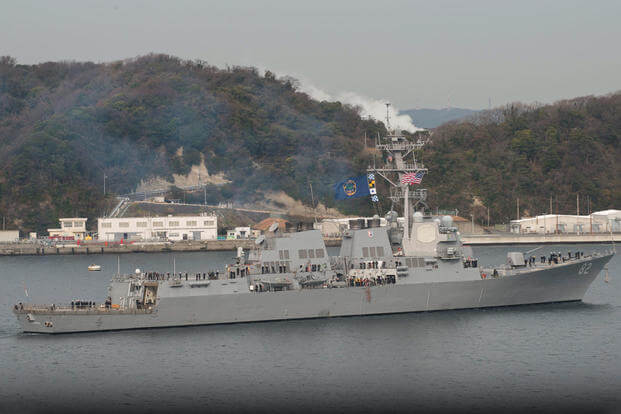SAN DIEGO -- If Pacific Fleet Commander Adm. Scott Swift has regrets about last October's "innocent passage" transit of the guided-missile destroyer USS Lassen near the Subi reef and other regions in the territorially contested Spratly islands in the South China Sea, it's that the Navy wasn't clearer about its intent with the mission.
"We lost control of the message for the Lassen piece, we didn't get out there and describe exactly what we're doing," Swift told an audience at the AFCEA West Conference in San Diego on Thursday. "[But] my view is innocent passage was absolutely the right mechanism to use to challenge those excessive claims."
White House and Defense Department officials were initially tight-lipped about that freedom of navigation operation, which China quickly denounced as a provocation. Defense Secretary Ashton Carter ultimately explained the mission in a Dec. 21 letter to Senate Armed Services Committee Chairman John McCain, a Republican from Arizona, but the two months of silence that preceded the letter led to confusion and speculation about what the transit meant and whose territorial claims were being challenged.
By contrast, Swift said, the freedom of navigation transit of the guided missile destroyer Curtis Wilbur near the Paracel island chain in the South China Sea last month featured a strong messaging strategy and clear intent.
Defense Department officials provided near real-time information about the operation, which took the Curtis Wilbur within 12 nautical miles of the Chinese-claimed Triton island, challenging attempts from Taiwan, China and Vietnam to restrict navigational rights in the region. The right of a ship to pass through territorial waters without prior notification is one of the tenets of the United Nations Convention on the Law of the Sea.
"It would be unfair not to recognize that there were multiple country claims that were being challenged with both those transits," Swift said. "The element with both the Lassen freedom of navigation operation and the Curtis Wilbur freedom of navigation was a requirement to either seek authority before you could enter territorial waters or to announce your intention to enter territorial waters. ... What we were challenging was prior authorities needed to be sought and approved or prior notification. That's what the legal precedent was."
He emphasized that both FONOPs were "agnostic" regarding the opposing territorial claims, challenging only attempts to restrict navigation in the region.
While Swift declined to comment on specific missions, he said the U.S. would continue to conduct freedom of navigation operations. When and where the next South China Sea transit will take place, he said, is a decision that will be made at the national level, with oversight by U.S. Pacific Command Commander Adm. Harry Harris.
"All I can say is that the Pacific Fleet is ready," he said. "We are an extensive force that is ready to conduct the spectrum of operations at any given time really at a moment's notice."
-- Hope Hodge Seck can be reached at hope.seck@monster.com. Follow her on Twitter at @HopeSeck.




























